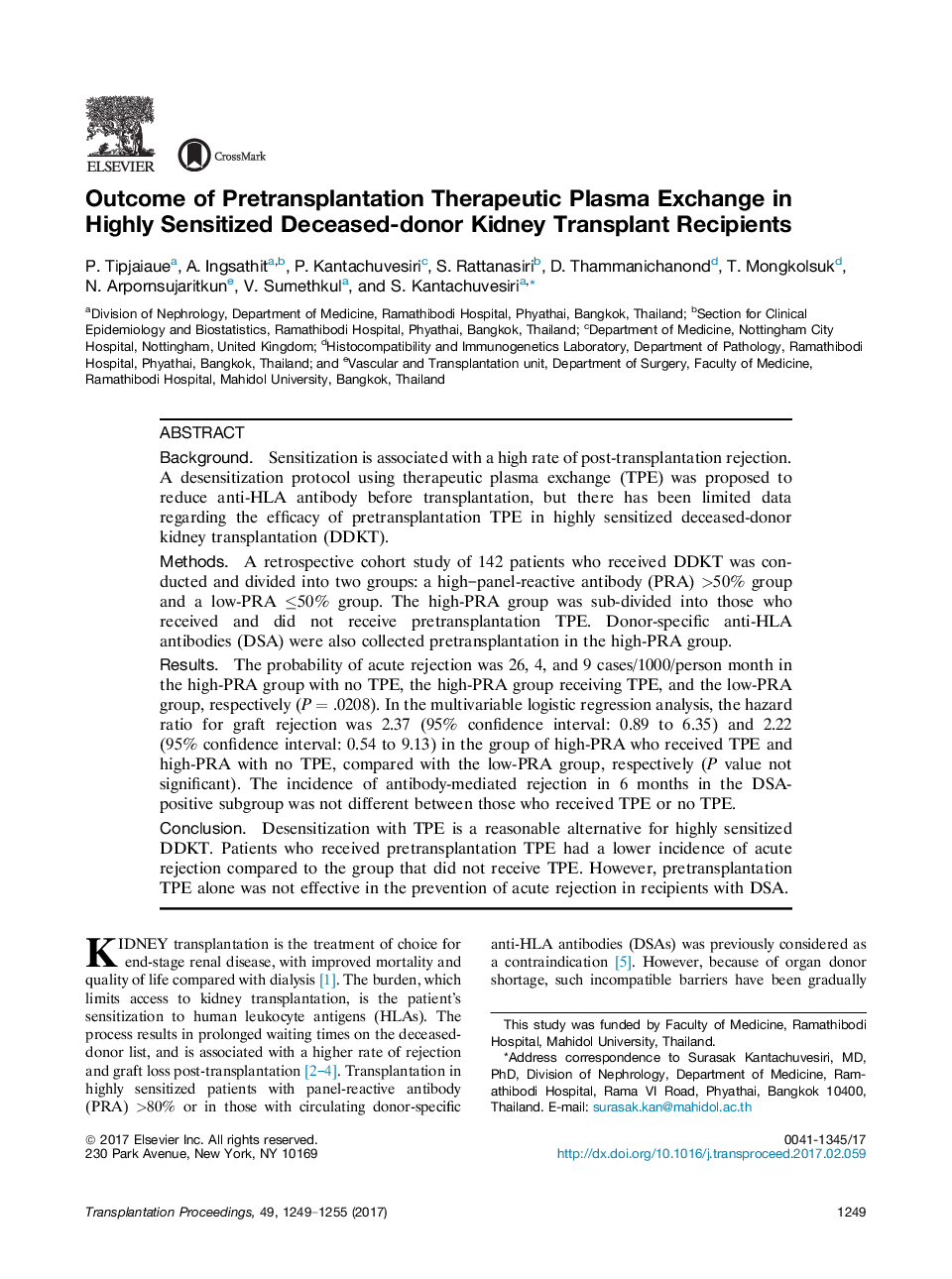| کد مقاله | کد نشریه | سال انتشار | مقاله انگلیسی | نسخه تمام متن |
|---|---|---|---|---|
| 5728676 | 1411669 | 2017 | 7 صفحه PDF | دانلود رایگان |
- There is a higher incidence of acute rejection in the highly sensitized patients (panel-reactive antibodies [PRA] >50%).
- The preformed donor-specific antigens (DSAs) were detected in 55.2% to 81.3% in the high-PRA group.
- DSA screening should be performed in the highly sensitized patients on waiting list.
- Pretransplantation therapeutic plasma exchange may reduce risk of rejection in highly sensitized deceased-donor kidney transplantation.
- Pretransplantation therapeutic plasma exchange is not effective in preventing antibody-mediated rejection in deceased-donor kidney transplantation patients with DSA.
BackgroundSensitization is associated with a high rate of post-transplantation rejection. A desensitization protocol using therapeutic plasma exchange (TPE) was proposed to reduce anti-HLA antibody before transplantation, but there has been limited data regarding the efficacy of pretransplantation TPE in highly sensitized deceased-donor kidney transplantation (DDKT).MethodsA retrospective cohort study of 142 patients who received DDKT was conducted and divided into two groups: a high-panel-reactive antibody (PRA) >50% group and a low-PRA â¤50% group. The high-PRA group was sub-divided into those who received and did not receive pretransplantation TPE. Donor-specific anti-HLA antibodies (DSA) were also collected pretransplantation in the high-PRA group.ResultsThe probability of acute rejection was 26, 4, and 9 cases/1000/person month in the high-PRA group with no TPE, the high-PRA group receiving TPE, and the low-PRA group, respectively (P = .0208). In the multivariable logistic regression analysis, the hazard ratio for graft rejection was 2.37 (95% confidence interval: 0.89 to 6.35) and 2.22 (95% confidence interval: 0.54 to 9.13) in the group of high-PRA who received TPE and high-PRA with no TPE, compared with the low-PRA group, respectively (P value not significant). The incidence of antibody-mediated rejection in 6 months in the DSA-positive subgroup was not different between those who received TPE or no TPE.ConclusionDesensitization with TPE is a reasonable alternative for highly sensitized DDKT. Patients who received pretransplantation TPE had a lower incidence of acute rejection compared to the group that did not receive TPE. However, pretransplantation TPE alone was not effective in the prevention of acute rejection in recipients with DSA.
Journal: Transplantation Proceedings - Volume 49, Issue 6, JulyâAugust 2017, Pages 1249-1255
